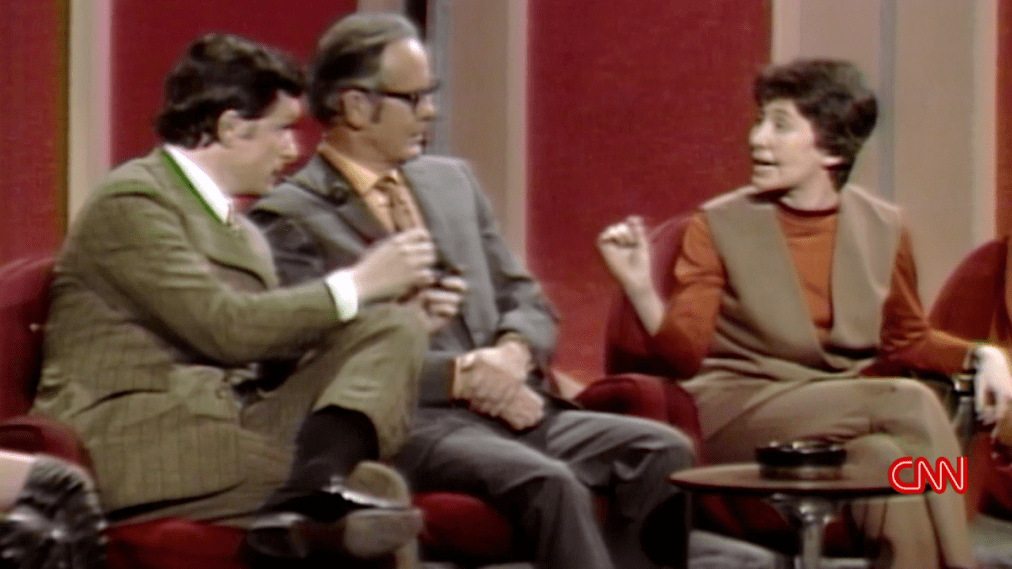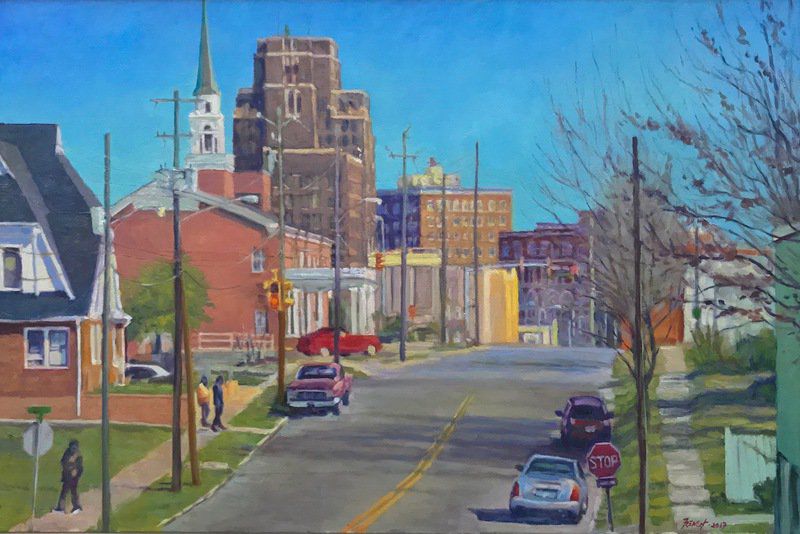Today's fabulously unusual You Tube video is as follows --
Title of the video:
Hugh Hefner Clashes With Feminists | The Dick Cavett Show
Uploader:
The Dick Cavett Show
It is 16:19 (sixteen minutes and 19 seconds).
The two feminists who visit the show are Susan Brownmiller and Sally Kempton.

Later on in the conversation, the camera shows another guest from earlier in the program, off to the left side of our view -- she speaks up, adding a perspective -- and I don't know for sure who it is. Couldn't find a name for her in the video's Description. I think it might be Grace Slick, of the Jefferson Airplane.
Susan Brownmiller is the one who announces calmly, firmly, and cheerfully, "Hugh Hefner is my enemy."
Mr. Hefner gets to add his thoughts and ideas, and occasionally the audience chimes in, calling out from the balconies....
Below is a sample of Ms. Brownmiller's writing.
------------------- [excerpt] -------------- Political organizers understand that the important thing about action is reaction. There you are, taking a stand, struggling to express a new idea, and the response is so powerful -- positive or negative -- that it reverberates into new responses and reactions, especially in you.
Lucretia Mott and Elizabeth Cady Stanton were part of the American delegation that traveled to London in 1840 for a World Anti-Slavery Convention.
As the high-minded congress got under way, the male abolitionists voted not to accredit and seat the women. For ten days Mott and Stanton watched the proceedings from the visitors' gallery, where in mortification and anger they hatched the idea for a women's rights congress that became the historic Seneca Falls Convention of 1848.
White women in the civil rights movement during the 1960s were also consumed by a vision of equality, one that seemed important enough to risk our lives for. (And one white woman, Viola Liuzzo, did in fact lose her life to a sniper on the Selma-to-Montgomery March.)
Although Martin Luther King, Jr., came to embody the stoic heroism of those hopeful years, to kids on the college campuses, and to many older radicals like me, SNCC, the Student Nonviolent Coordinating Committee, was the true cutting edge of the movement.
SNCC had been formed after the lunch-counter sit-ins in February 1960. And it was SNCC that sent out the call for an army of northern volunteers to help register black voters in Mississippi during the summer of 1964, the call to which so many white women responded.
SNCC was cast in the image of a young, fearless black male, a concept that may have been necessary for its time, but its corollary was that women of both races were expected to occupy a lesser role.
Jane Goodman and I were in the second batch of volunteers for Mississippi Freedom Summer. No longer part of the student community from which SNCC drew most of its volunteers, I was by then a researcher at Newsweek, stuck in a dead-end job, and Jan was directing inner-city programs for the Girl Scouts. During our orientation session in Memphis, we were told that Meridian needed emergency workers.
Michael Schwerner, the project director, James Chaney, a local organizer, and Andrew Goodman, a summer volunteer who hadn't had time to unpack his duffel, had just been murdered in nearby Neshoba County, although their bodies would not be found for another forty days.

When no one else at the Memphis orientation session volunteered for Meridian, Jan and I accepted the assignment. Between us, we had a good ten years of organizing experience, hers in Democratic primaries and presidential campaigns, mine in CORE, the Congress of Racial Equality, and both of us together in voter registration drives in East Harlem.
The night we arrived in Meridian, a field secretary called a meeting, asking to see the new volunteers. Proudly we raised our hands.
"Shit!" he exploded. "I asked for volunteers and they sent me white women."
On other projects in other Mississippi towns that summer, white women were reminded of their second-class status as movement workers through a variety of slights. Because of the southern white male's phobia about mixing the races, our presence in the volunteer army of integrationists was construed as an added danger to the movement's black men.

I do not wish to underestimate this danger, but there will always be a germ of a reason, sound or unsound, behind the perpetuation of sexist practice.

When antiwar activism got under way a year or so after Mississippi Freedom Summer, there was also a logical reason why women in that movement were relegated to second-class status: the draft for the war in Vietnam directly affected young men.
Women the world over are required to modify their behavior because of things that men fear and do.
------------------------ [excerpt, In Our Time: Memoir of a Revolution, by Susan Brownmiller. 1999 - Dial Press]
-30-
No comments:
Post a Comment